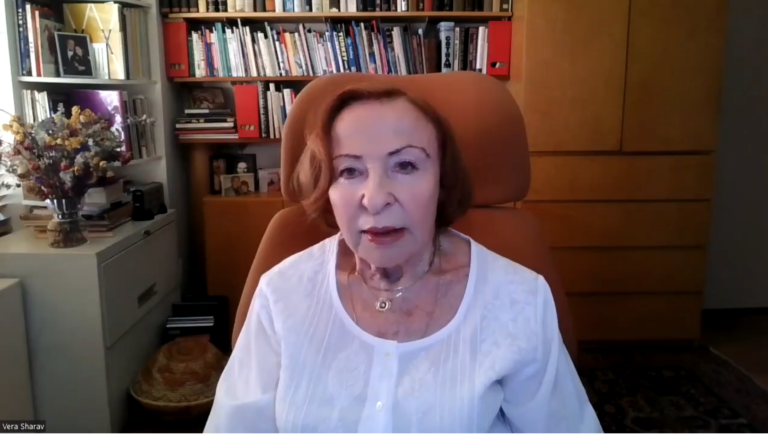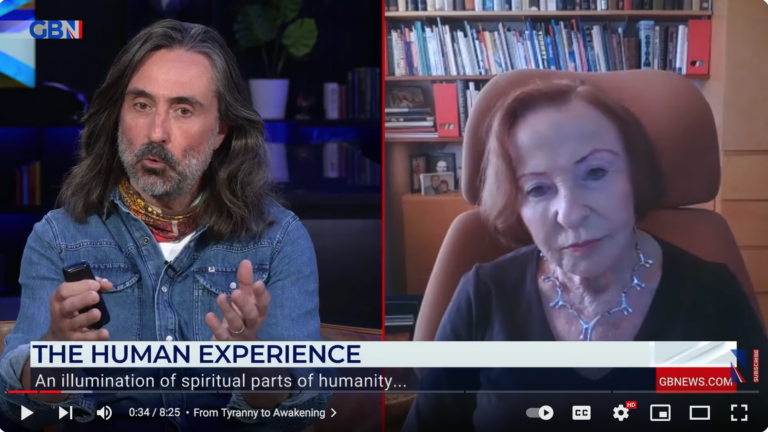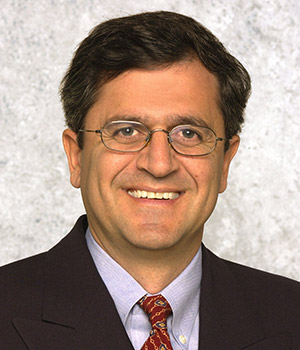John H. Noble, Jr., Ph.D
John H. Noble, Jr, Ph.D., retired in August, 2005, from his position as Endowed Professor for Social Justice, The Catholic University of America. He has been Emeritus Professor since 1993 at the State University of New York at Buffalo, where he held joint appointments in the School of Social Work and in Rehabilitation Medicine. Over the years, his research and analytic interests have focused on the evaluation of public policy as it furthers or hinders the autonomy of disabled people. These interests converge on the human rights mission of the Alliance for Human Research Protection in confronting the increasing commodification of human beings by health care and other institutions of society.
In the early 1970s when the federal government was reacting to the Tuskegee scandal and the involvement of the Public Health Service in the unethical investigation of the sequelae of syphilis in human beings, he was exploring the strengths and weaknesses of peer review. He concluded that peer review as conducted by government agencies failed to probe the quality and ethics of research proposals because it did not follow through with an evaluation of the products of research. Failure to evaluate the outcome of government-funded research has resulted in unjustifiable, duplicative, even trivial research. Dr. Noble recommended that government agencies invest in end-product evaluation of research and dissemination of the results. See John H Noble Jr. (September 13, 1974). Peer review: Quality control of applied social research. Science 185:916–921. His research disclosed sources of bias in peer review that persist to this day in the decision-making of scholarly journals and expert committees that rely on peer review of evidence — a matter of great concern for the Alliance for Human Research Protection.
Throughout the 1970s and to the present time, the concepts of disability and rehabilitation have suffered from oversimplification. Dr. Noble turned to cross-national investigation of government systems and policies to develop a disability and rehabilitation model that identified the combination of societal and individual variables that influence the outcomes of rehabilitation. See John H. Noble, Jr. (1979). Rehabilitating the severely disabled.: The foreign experience. Journal of Health Politics, Policy and Law. 4:221–249. He currently looks to international comparisons in the examination of the operations of institutional review boards in the United States and their counterparts elsewhere to detect threatening developments to which the Alliance for Human Research Protection should pay heed and address.
In 1984, he turned to the influence that competing systems of ethics have on policy deliberations and decision-making affecting the lives and even the chance for life of persons with severe disabilities. He concluded that those who wished to promote the best interests of such people were advised to adopt John Rawls’ theory of social justice as antidote to the prevailing utilitarian theory. See John H Noble Jr. (1987). Ethical considerations facing society in rehabilitating severely disabled persons. Marriage and Family Review. 11(1/2):65–87. Insights about alternative ethical models and how they influence decision-making continue to guide analysis of the operations and decisions of institutional review boards in the United States and their counterparts elsewhere. The prevailing model of rule-utilitarianism is seen as promoting a narrow view of “ethical” research that depends on parsing the human research regulations to find and check off the right boxes instead of weighing the consequences of decisions as would be the case in act-utilitarianism or a wide-ranging casuistry that takes into account principles, rules, and case histories.
As AHRP board member, Dr. Noble has turned attention to factors influencing the quality of research involving human subjects in the behavioral and biomedical sciences. His review, “Meta-analysis: Methods, strengths, weaknesses and political uses,” that appeared in the Journal of Laboratory and Clinical Medicine (2006; 147:7–20) advocates use of meta-analytic techniques to measure the extent of potential bias in scientific reports caused by the detected conflicts of interest of their authors. He demonstrates the ways by which research fraud and lesser forms of “premeditated bias” are perpetrated in “Detecting bias in biomedical research: looking at study design and findings is not enough, that appeared in the Monash Bioethics Review (2007; 26(1/2):24–45.
Increasingly, the issues of research fraud and “premeditated bias” and the role of industry are receiving close scrutiny by some biomedical research journals — most notably the British Medical Journal, Lancet, PLOS Medicine, and the New England Journal of Medicine. Accordingly, Dr. Noble has turned to these journals to critique the positions and supporting arguments in heated debates about how to protect the integrity of the science on which the viability of “evidence-based” medicine must depend. The British Medical Journal has published 20 of his reactive commentaries on a wide range of topics, including: impotence of voluntarism, the failures of shoddy public accountability of the FDA and NIH, the illegal surveillance of FDA scientists, off-label marketing as free speech or illegal promotion, medical journal policies and publishers views on trial registration and publication bias, secrets in health care, the thwarting of evidence-based medicine by legally-protected free “commercial speech” and “trade secret and intellectual property” laws, the manipulation of the Declaration of Helsinki by industry-influenced public officials, criminalizing research fraud, and controlling conflict of interests by requiring as condition of publication access to anonymized original data and code books as condition for publication.
Picking up on his British Medical Journal commentary, The Journal of the Royal Society of Medicine published his challenge to the editor, “Transparency as condition for JRSM publication?” (2014; 107(7):259). Likewise, The New England Journal of Medicine invited Dr. Noble to create a blog site (10 February 2014) to argue his position on criminalizing research fraud, in which he asserted that outright fraud and premeditated bias undermine the very possibility of “evidence-based medicine.” See Is Fraudulent Science Criminal?
Read Articles here:
“Economics of Equality 2003”
“Ethical Considerations Facing Society001”
“The Human Rights of Persons With Intellectual Disabilities: Different But Equal”
“Limits of Benefit Cost Analysis 8-1977”
“Meta-analysis Methods, strengths, weaknesses & political uses”
“Peer Review AQuality Control of Applied Social Research”
“Rehabilitating the Severely Disabled 1979”
Transparency as a condition for JRSM publication?”
2019. Whither Cochrane? Meryl Nass, MD and John H. Noble Jr. Indian Journal of Medical Ethics2019. Challenging The Promotion Of Antidepressants For Non-Severe Depression, John H. Noble Jr, Alain Braillon, Joel Lexchin, Acta Psychiatrica Scandinavia
2017. Truth in Research Labelling, John H. Noble Jr. Indian Journal of Medical Ethics
2017. Should Research Ethics Committees Police Reporting Bias? Rapid Response (Fourth Comment) by John H. Noble, Jr. British Medical Journal, 2017: Comment also posted here
2017. A Need To Stand United: Reply To The WAME Secretary, John H. Noble Jr., Indian Journal of Medical Ethics
2017. Truth In Research Labelling, JHN, Indian Journal of Medical Ethics
2017. Letter Submitted to New England Journal of Medicine re ARDS Investigation, JHN and Vera Sharav
2017. Should Research Ethics Committees Police Reporting Bias? JHN, BMJ
2017. A Need To Stand United: Reply To The WAME Secretary JHN, Indian Journal of Medical Ethics
2016. ”Trust The Researchers”: Flying In The Face Of Evidence, JHN, Indian J of Med Ethics
2016. Peeling The Onion From The Inside Out, JHN, Indian Journal of Medical Ethics
2015. Re: FDA Disagrees With BMJ Study That Found Clinical Trials Were Not Being Reported, JHN, British Medical Journal
2015. Re: Comparative Effectiveness Of Exercise And Drug Interventions On Mortality Outcomes: Metaepidemiological Study, JHN, British Medical Journal
2015. Re: Evidence Based Medicine: A Movement In Crisis, JHN, BMJ
2015. Re: US Researchers Failed To Disclose Risks Of Newborn Study, Finds Government Office, JHN, BMJ
2015. Re: Research Misconduct Is Widespread And Harms Patients, JHN, BMJ
2015. Re: Should Research Fraud Be A Crime?, JHN BMJ
2012. The Emperor Is Marching Around Buck Naked, JHN, BMJ
2009. Review Article-Jill A. Fisher, Medical Research for Hire: The political Economy of Pharmaceutical Clinical Trials, John H. Noble Jr Monash Bioethics Review 28 (3):24 (2009)
2008. A Reader Responds to “The Myth of Equipoise in Phase 1 Clinical Trials” John H. Noble, Jr. Medscape Journal of Medicine
2008. Protecting People With Decisional Impairments and Legal Incapacity Against Biomedical Research Abuse, John H. Noble Jr and Vera Sharav, Journal of Disability Policy Studies
2006. Meta-Analysis: Methods, Strengths, Weaknesses, and Political Issues, John H. Noble, Journal of Laboratory and Clinical Medicine.
2003. Economics of Equality John H. Noble
2003. Letter to the Editor, John H. Noble Jr and Vera Sharav, The New England Journal of Medicine
Internet articles and citations
03. 2019. Whither Cochrane?, Meryl Nass, MD and John H. Noble Jr., Indian Journal of Medical Ethics
01. 2019. Challenging The Promotion Of Antidepressants For Non-Severe Depression, John H. Noble Jr., Alain Braillon, and Joel Lexchin, Acta Psychiatrica Scandinavia
06. 2019. Truth in Research Labelling, John H. Noble Jr., Indian Journal of Medical Ethics
05. 2017. Letter Submitted to New England Journal of Medicine re ARDS Investigation, John H. Noble Jr. and Vera Hassner Sharav
03. 2017. Should Research Ethics Committees Police Reporting Bias? Rapid Response (Fourth Comment), John H. Noble Jr., British Medical Journal, comment also posted here
03. 2017. Should Research Ethics Committees Police Reporting Bias?, John H. Noble Jr., British Medical Journal, comment also posted here
02. 2017. A Need To Stand United: Reply To The WAME Secretary, John H. Noble Jr., Indian Journal of Medical Ethics
09. 2016. ''Trust The Researchers'': Flying In The Face Of Evidence, John H. Noble Jr., Indian Journal of Medical Ethics
05. 2016. Peeling The Onion From The Inside Out, John H. Noble Jr., Indian Journal of Medical Ethics
05. 2015. Re: FDA Disagrees With BMJ Study That Found Clinical Trials Were Not Being Reported, John H. Noble Jr., British Medical Journal
05. 2015. Re: Comparative Effectiveness Of Exercise And Drug Interventions On Mortality Outcomes: Metaepidemiological Study, John H. Noble Jr., British Medical Journal
05. 2015. Re: Evidence Based Medicine: A Movement In Crisis, John H. Noble Jr., British Medical Journal
05. 2015. Re: US Researchers Failed To Disclose Risks Of Newborn Study, Finds Government Office, John H. Noble Jr., British Medical Journal
05. 2015. Re: Research Misconduct Is Widespread And Harms Patients, John H. Noble Jr., British Medical Journal
05. 2015. Re: Should Research Fraud Be A Crime?, John H. Noble Jr., British Medical Journal
01. 2012. The Emperor Is Marching Around Buck Naked, John H. Noble Jr., British Medical Journal
01. 2009. Review Article-Jill A. Fisher, Medical Research for Hire: The political Economy of Pharmaceutical Clinical Trials, John H. Noble Jr., Monash Bioethics Review 28(3):24
12. 2008. A Reader Responds to “The Myth of Equipoise in Phase 1 Clinical Trials” , John H. Noble Jr., Medscape Journal of Medicine
03. 2008. Protecting People With Decisional Impairments and Legal Incapacity Against Biomedical Research Abuse, John H. Noble Jr. and Vera Hassner Sharav, Journal of Disability Policy StudiesProtecting People With Decisional Impairments and Legal Incapacity Against Biomedical Research Abuse
10. 2007. Declarationof Helsinki. Dead, John H. Noble Jr., British Medical Journal
01. 2006. Meta-Analysis: Methods, Strengths, Weaknesses, and Political Issues, John H. Noble Jr., Journal of Laboratory and Clinical Medicine
06. 2003. Economics of Equality, John H. Noble Jr., Oxford University Press







